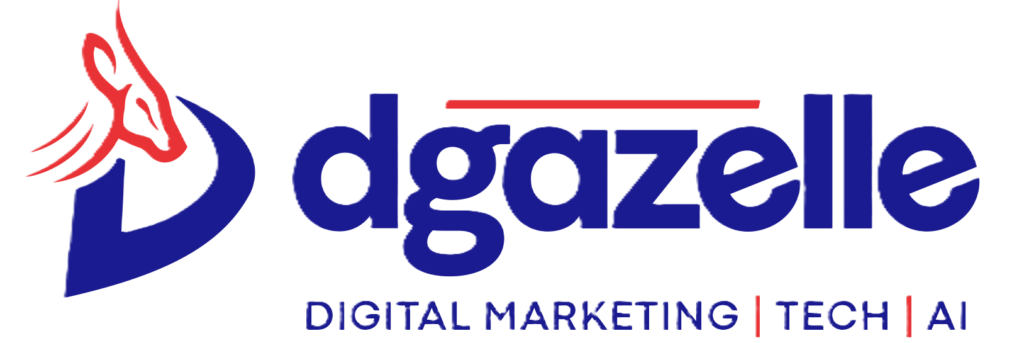If your SEO efforts aren’t yielding results, the culprit could be poorly optimized URL slugs. They’re small yet mighty tools that can directly affect your rankings. Let’s explore their importance and learn actionable tips for creating SEO-friendly URL slugs that boost visibility.
What is URL Slug
A slug is a key component of any webpage URL. It’s the portion that identifies a unique page on your site and appears immediately after the domain name, following a slash. Think of it as the digital “name tag” for your pages, helping search engines and users understand what to expect on the page.
URL slugs should be easy to read and accurately describe the content. They come after the directory and before any additional parameters or fragments, remaining dynamic for each unique page while other URL parts, like the domain name, stay consistent.
An SEO-friendly URL is designed to provide clarity and context to both search engines and users, helping them understand what a page is about at a glance. These URLs are typically concise, descriptive, and include relevant keywords that reflect the content of the page.
The URL slug is the backbone of an SEO-friendly URL. It serves as a clear signal to users and search engines, setting expectations about the page’s content. A good slug is short, easy to read, and provides a precise indication of what visitors will find when they click through.
By optimizing your URL slugs, you create pathways that enhance visibility and improve user experience.
Why Is a URL Slug Important for SEO?
URL slugs may not directly impact rankings, but they significantly influence user behavior and overall experience. A well-crafted slug signals relevance in the search engine results page (SERP) snippet, helping users decide whether your page matches their search intent.
Messy, unclear slugs can confuse visitors and make your site seem less trustworthy. Conversely, a clean, descriptive slug builds trust and encourages clicks. Including target keywords in your slug can subtly enhance relevance, even if it’s a lightweight ranking factor, as noted by Google’s John Mueller.
In essence, while URL slugs may not dominate search rankings, they bridge user experience and SEO. Crafting user-focused slugs improves navigation, builds confidence, and could boost click-through rates—making them a critical, though understated, part of an effective SEO strategy.
Optimizing URL Slug
Make them readable.
It’s crucial that URL slugs are easy to read and comprehend because they should immediately convey the content of the page. This entails avoiding superfluous characters like numbers or symbols and keeping it brief and direct.
A URL slug like contact, for instance, makes it obvious that this is the page to visit in order to find contact details. This is not only simple to read, but it also has the added advantage of being simple to remember, allowing users to return to it at a later time.
Keep it brief.
It is impossible to have the ideal slug length. Although there are some rules to follow, there is no set amount of characters you should utilize.
In general, shorter is preferable. Short URLs are preferred by Google, and if two pages have the same metrics, the shorter one will rank better. The tie-breaking criterion is URL length.
Shorter URLs appear more appealing on search engine results pages (SERPs) and are easier for both visitors and search engines to grasp. But remember that descriptive URL slugs are still important. It doesn’t have to be the full length of the title, but it shouldn’t be so brief that the searcher can’t understand the purpose of the page. As previously said, concentrate on choosing keywords that accurately represent the content of the website.
It is also possible to abbreviate the slug without sacrificing context by eliminating superfluous stop-words such as a, and, or the. This aids in readability as well.
Remove dates and numerals to make it future-proof.
It becomes challenging to reuse the page later if you wish to update the content because URL slugs contain numbers and dates.
A slug like /10-SEO-tips-in-2016/, for instance, restricts the page’s content to those predetermined characteristics. You will either need to utilize a redirect to a more recent version of the page or allow the material to appear out of date if you wish to add more SEO tips, such as 23 tips for 2022, or if you want to make it more current, such as SEO recommendations for 2022. In any case, it’s preferable to stay away from numbers and dates because it’s not the best scenario.
Use just lowercase letters.
It is usual practice to use only lower-case URL slugs to prevent duplicate content concerns and 404 errors because everything after the domain can be case-sensitive. Making it as simple as possible for users to change URLs in their browser’s address bar will help you reduce the likelihood that people will create inaccurate connections to your pages.
Use hyphens.
For clear, legible URL slugs, use hyphens (-) to separate words. Hyphens are an exception and have established standard practice in this specific use-case, even if you should limit the use of other characters and symbols. Additionally, Google suggests using this punctuation.
Resources for Improving Your URL Slugs
You can identify problems with your URL slugs and optimize them with the following three tools:
Yoast SEO
Yoast SEO is a well-known WordPress plugin that aids with search engine optimization. It offers modification and optimization options for URL slugs right in the post editor. Thus, there is no need for you to code.
This is a really simple method to make sure your URL slugs are optimized from the time you press publish if your website is WordPress-powered. However, you can utilize the tool for your Shopify website as well.
Semrush
The Site Audit tool from Semrush examines the functionality and health of your website. Additionally, it examines how well your URL slugs are optimized as part of its assessment. Semrush checks your website for problems such as: An excessively lengthy URL, Incorrect formats for the URL slug, and URLs that contain underscores
This simplifies the process of identifying problems with your URLs at scale.
Google Search Console
Google offers a free tool called Google Search Console to track how often your website appears in search results. Additionally, it can be used to diagnose problems with your URL slugs.
This can be accomplished with the “Performance” report. This report displays information about your URLs’ average position, clicks, and impressions.
Pages that have a lot of impressions but few clicks are what you want to search for. These differences could be a sign of issues with your URL slugs. To compare the search queries generating those impressions, click on any URL that has a lot of impressions but few clicks.
The URL slug may not be in line with user intent if there is a discrepancy between the query and the slug. Stated differently, the user’s desired outcome from a specific search query.
Therefore, if users don’t perceive that your URL slug fits their query, they are unlikely to click on your page, even if it ranks for that query. Changing the slug to better fit the query may increase the number of clicks.
Conclusion
A well-written URL slug can improve user and search engine comprehension of your content. You offer your pages a little SEO boost and improve the user experience for visitors by using succinct, descriptive, and keyword-rich slugs.
Keep in mind that, despite being a minor component, URL slugs nonetheless play a part in the overall strategy of content optimization and adherence to SEO best practices, which improve ranks and engagement.
Don’t let poorly crafted slugs hold your site back. Our SEO specialists create clear, keyword-driven URL strategies to enhance visibility and drive clicks. Let’s optimize your site for better rankings today!







